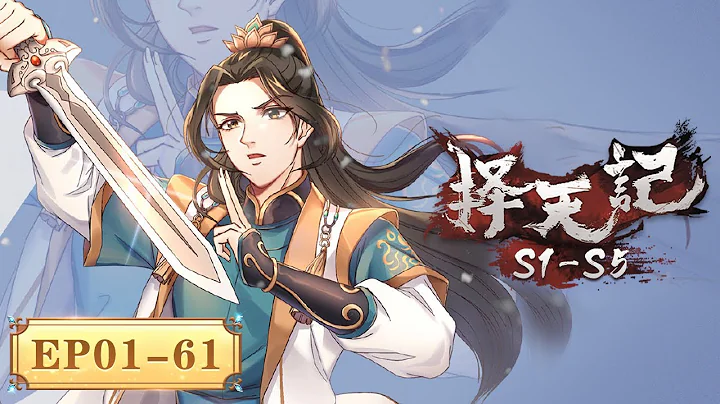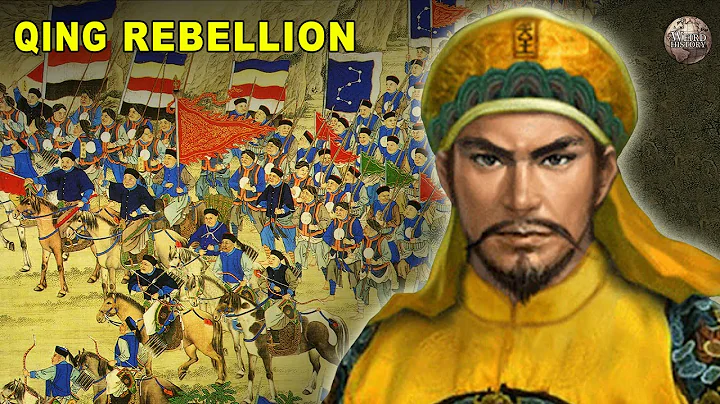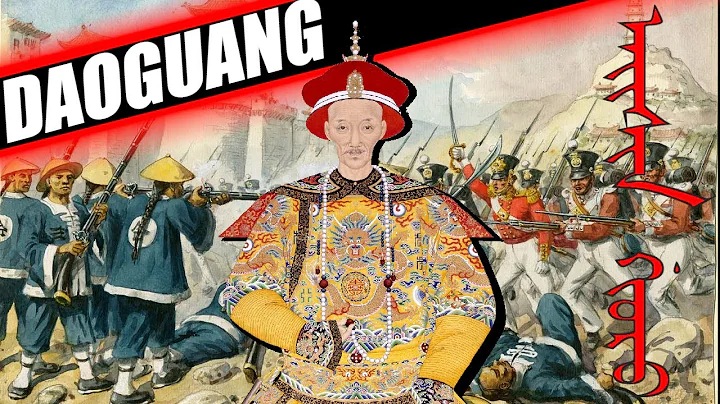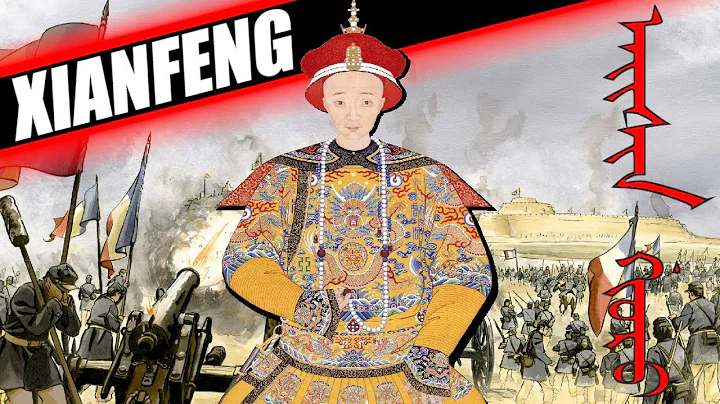Ranking of the three longest-lived emperors in Chinese history:

The three longest-reigning emperors in Chinese history:

Emperor introduction:

Emperor Qianlong
The first Hongli: the longest-lived emperor in Chinese history, and also The second longest reigning emperor (the emperor who actually held power the longest).
Aixinjueluo Hongli, Emperor Gaozong of the Qing Dynasty (September 25, 1711 - February 7, 1799), was the sixth emperor of the Qing Dynasty and the fourth emperor after his capital was Beijing. The era name "Qianlong" means "prosperity of heaven". has been in power for sixty years. After the Zen throne, he continued to coach the government and actually exercised the highest power for sixty-three years and four months. He is the emperor who has actually held the highest power in the country for the longest time in Chinese history and is also the longest-lived emperor. . Emperor Qianlong was a famous emperor in Chinese feudal society. During the reign of Emperor Qianlong, the Qing Dynasty reached its highest peak since the heyday of Kangxi and Qianlong. Based on the civil and martial arts of Kangxi and Yongzheng, he further completed the unification of a multi-ethnic country and made further progress in social economy and culture. develop. Qianlong attached great importance to social stability and cared about the people. He exempted the world's money and grain five times and exempted grain from eight provinces three times, which reduced the burden on farmers, protected agricultural production, and enriched the Qing Dynasty's treasury. During the Qianlong period, martial arts flourished, and he made great achievements in quelling rebellions in border areas. He also improved his rule over Tibet and once again incorporated Xinjiang into China's territory. This maximized the territory of the Qing Dynasty and formally established the territory of modern China. . Sinology has been greatly developed, with the opening of the Bo Xue Hong Ci Department and the compilation of "Sikuquanshu"; at the same time, folk arts have also developed greatly, such as Peking Opera, which began to take shape during the Qianlong period. However, in the later period, the official administration deteriorated and uprisings broke out in many places. Strictly resist the aggressive behavior of Britain and Russia, and reject the unreasonable demands for trade and sovereignty made by the British Macartney Mission. But at this time, the gap between China and the West also widened, and China was on the eve of modern times. In the 60th year of Qianlong's reign (1795), Emperor Qianlong lived in Zen, his fifteenth son Yong Yan. He died in Yangxin Hall on the third day of the first lunar month of the fourth year of Jiaqing (February 7, 1799) at the age of 89. His temple name was Gaozong, his posthumous name was Fatian Longyun Zhicheng Xianjue Tiyuan Liji Fuwen Fenwuqin Ming Xiaoci Mingsheng Shengchun Emperor. He was buried in Yuling in the Eastern Tomb of the Qing Dynasty.

Emperor Wu of Liang
The second Xiao Yan: the emperor with the second longest lifespan.
Emperor Wu of Liang Dynasty, Xiao Yan (464-June 12, 549), also known as Shuda or Lianer, was a native of Dongcheng, Lanling County, Nanlan (now Dongcheng Village, Picheng Town, Danyang City, Jiangsu Province). Emperor Liang Kaiguo of the Southern Dynasty (reigned from April 30, 502 to June 12, 549), the twenty-fifth generation grandson of Xiao He, the prime minister of the Western Han Dynasty, and the son of Xiao Shun of Danyang, Yin in the Southern Qi Dynasty. Xiao Yan was born in the Xiao family of Lanling. During the Southern Qi Dynasty, he entered the official position as Menyin. During the Ming Dynasty of Qi Dynasty, he served as the governor of Yongzhou, and participated in the defense against the invasion of the Northern Wei Dynasty. In the second year of Yongyuan (500), he raised troops to attack Xiao Baojuan, the Marquis of Donghun, and supported Xiao Baorong, King of Nankang, to proclaim himself emperor. The following year, he captured Jiankang. In the second year of Zhongxing (502), he accepted Xiao Baorong's "zen position" and established the Nanliang Temple. In the early days of Xiao Yan's rule, he paid attention to government affairs and corrected the bad governance since Song and Qi. In order to bring the states and counties under his control, he adopted the policy of replacing dissidents, appointing cronies, and conducting crusade. He respected the noble family and treated the clan with kindness. Militarily, it resisted the Northern Wei Dynasty's invasion from the south, and once won the Battle of Zhongli in China, maintaining the balance of power between the north and the south. Later, it made several Northern Expeditions, but the results were not great. In the late period of his reign, as he grew older, he began to be indifferent to political affairs. In the second year of Taiqing (548), the "Hou Jing Rebellion" broke out. The following year, Xiao Yan was imprisoned and died in Jiankang Taicheng at the age of 86, ranking first among the emperors of the Southern Dynasties. His posthumous title was Emperor Wu, his temple name was Gaozu, and he was buried in Xiu Ling. Xiao Yan has a quick mind and a broad knowledge of literature and history. He is one of the "Eight Friends of Jingling". He wrote thousands of poems, many of which are masterpieces. After he ascended the throne, he ordered the compilation of six hundred volumes of "General History" and personally wrote the preface. Later generations believed that "the ancient emperors' artistic knowledge was rare and rare".He was good at music and calligraphy. Under his advocacy, Nanliang's literature and art developed rapidly.

Wu Zetian
The third Wu Zetian: ranked third in lifespan, the oldest in age, the only orthodox female emperor in history
Wu Zhao[zhào] (624-December 16, 705), that is, Wu Zetian, Bingzhou Wenshui ( Wenshui County, Shanxi Province today). A politician from the Tang Dynasty to the Wu Zhou Dynasty, the founding monarch of the Wu Zhou Dynasty (reigned from 690 to 705), was also the only orthodox female emperor in Chinese history, the oldest to ascend the throne (67 years old), and one of the longest-lived emperors One (82 ). Wu Zetian was the second daughter of the Jingzhou governor warrior Xun. When he was fourteen years old, he entered the harem and became a talented person of Emperor Taizong of the Tang Dynasty. He was awarded the title "Huang Wu Mei". In the sixth year of Emperor Gaozong of the Tang Dynasty, Zhaoyi was granted the title of Zhaoyi, and in the sixth year of Yonghui (655), she became the queen after the "Abolition of the King and Li Wu" incident. In the first year of Shangyuan (674), she was given the title of "Tianhou", and together with Gaozong, she was called the "Two Saints" and participated in the government affairs. After the death of Gaozong, the empress dowagers of Tang Zhongzong and Ruizong of Tang Dynasty came to the court and took the title of queen. In the first year of Tianshou (690), Wu Zetian proclaimed himself emperor, changed the name of the country to Zhou, made the capital Luoyang, known as the "Godly Capital", and established Wu Zhou. Before and after his reign, he was "clearly aware and good at judgment", had many powers and strategies, knew people well and assigned them well, attached great importance to the selection of talents, and created the palace examination, martial arts and official examination system. He also rewarded farmers and mulberry trees and reformed the administration of officials. At the same time, the Tang Dynasty clan members were massacred and "cruel official politics" emerged. Militarily, the four towns of Anxi were recovered and stabilized, and the latter Turkic surrendered for a time. In his later years, he gradually became extravagant and arbitrary, and developed bad governance. In the first year of Shenlong (705), Wu Zetian died of illness. Prime Minister Zhang Jianzhi and others launched the "Shenlong Revolution" to support the restoration of Tang Zhongzong and forced him to abdicate. After Emperor Zhongzong restored the Tang Dynasty, he was given the title "Emperor Zetian the Great Sage". In November of the same year, Wu Zetian died at the age of eighty-two in Shangyang Palace. Zhongzong followed his orders and changed her name to "Queen Zetian the Great Sage" and was buried in Qianling Mausoleum as a queen. Later, she was given the posthumous title of "Queen Zetianshun". Wu Zetian was very intelligent, involved in literature and history, and was quite talented in poetry. There are " Chui Gong Ji " and "Jin Lun Ji", which are now lost. His poems are preserved in "Complete Poems of the Tang Dynasty".

Emperor Kangxi
The fourth Xuanye: the longest reigning emperor
Qing ShengzuAisin Gioro Xuanye (May 4, 1654-December 20, 1722), the fourth in the Qing Dynasty Emperor, the second emperor after the Qing Dynasty established its capital in Beijing (reigned 1661-1722), with the reign name "Kangxi". The Mongolians called him Enkh Amgulang Khan; the Tibetans respected him as "Emperor Manjusri". The third son of Emperor Shunzhi, his biological mother is Empress Xiaokangzhang Tong Jia. Emperor Kangxi ascended the throne at the age of 8 and took charge of the throne at the age of 14. He reigned for 61 years and was the longest reigning emperor in Chinese history. In the early days of his administration, the domestic and international situation was very severe. Faced with the severe situation, he insisted on using troops on a large scale to achieve territorial integrity and reunification. Emperor Kangxi defeated the powerful minister Obai when he was young and began to truly rule personally. In the ninth year, the imperial court was rectified, the cabinet system was restored, and the "Sixteen Articles of the Holy Edict" were promulgated. After adulthood, in the 20th year of Kangxi (1681), he put down the San Francisco Rebellion; Penghu Naval Battle, unified Taiwan; defeated the Russian invading army, signed the " Treaty of Nerchinsk" to ensure China's sovereignty over the Heilongjiang River Basin; He conquered Galdan three times and achieved victory; he established the "Duolun Alliance " to replace the war and contact various Mongolian ministries. Strengthen centralization in politics; advertise benevolent governance, win over Han scholars, and at the same time pay attention to recuperation and economic development. However, Emperor Kangxi was tired of hard work in his later years, and his officialdom was corrupted. In addition, the princes competed for the throne due to the incident of deposing the crown prince, which had a negative impact on the politics of Emperor Kangxi in his later years. Emperor Kangxi was the defender of a unified multi-ethnic country, laid the foundation for the prosperity of the Qing Dynasty, and created the prosperous era of Kangxi and Qianlong. Some scholars respected him as "one emperor through the ages", while others called him "one emperor for a thousand years". He died in Changchun Garden on November 13 of the lunar calendar in the 61st year of Kangxi (1722) at the age of 69.The temple name is Shengzu, the posthumous name is Hetian Hongyun, Wenwu Ruizhe, Frugal, Frugal, Filial, Honest, Neutral and Meritorious. Emperor Chengren was buried in Jingling. The biography is located in the fourth child Yinzhen .

Emperor Wu of the Han Dynasty
The fifth Liu Che: the third longest reigning emperor
Emperor Wu of the Han Dynasty Liu Che (156 BC - March 29, 87 BC), the seventh emperor of the Western Han Dynasty (reigned from 141 BC to 87 BC) , an outstanding politician, strategist, and writer. The son of Han Jing Emperor Liu Qi , his mother was Queen Wang. Liu Chechu was granted the title of King of Jiaodong. He was established as the crown prince at the age of seven and inherited the throne at the age of sixteen. He reigned for fifty-four years and made many achievements: internally, in order to strengthen the centralization of power, he issued favor orders and formulated the Zuoguan Law. and the supplementary benefit law strictly prohibited princes and kings from participating in political affairs; they hired talents in an eclectic way and promoted talented scholars as attendants to prepare advisors; they reduced the powers of the prime minister and relied on cronies and close ministers to participate in decision-making, thus forming an internal dynasty (Chinese dynasty). ) and the political system of the foreign dynasties; set up the Thirteen Prefectures Provincial History Department to strengthen control over the counties; in order to solve financial difficulties, reform the currency system, prohibit the counties from casting money, and implement the official operation of salt and iron, and the equalization of losses, etc. system; promulgated calculation and reporting orders, and levied heavy taxes on merchants; established a formal examination and evaluation system, so that counties and counties can promote filial piety, integrity, talents, virtuous and upright people; implemented a cultural policy of respecting Confucianism, and established Doctors of the Five Classics in the capital. Chang'an built the Taixue , and ordered all counties and counties to establish academic officials. Externally, he sent Wei Qing and Huo Qubing to attack the Xiongnu many times, forcing them to move to Mobei; he ordered Zhang Qian to go to the Western Regions as an envoy to communicate with the various ethnic groups in the Western Regions; he also conquered Minyue, Dongou, Nanyue, and the Wei family. North Korea managed southwestern barbarians and established counties there. Liu Che was superstitious about immortals and was keen on enshrining Zen and offering sacrifices in suburbs. He traveled to various places many times and spent extravagantly. In the later years of his reign, social conflicts became increasingly acute, with two million refugees in Guandong and frequent peasant uprisings. A "witchcraft disaster" occurred in the palace, causing Prince Liu Ju to commit suicide. In the fourth year of Zhenghe (89 BC), the Luntai edict was issued, rejecting Sang Hongyang's suggestion to recruit people to farm in Luntai. In the second year of Houyuan (87 BC), Liu Che died at the age of seventy. Before his death, he made his youngest son Liu Fuling the crown prince. His posthumous title was Emperor Xiaowu, his temple name was Sejong, and he was buried in Maoling.
These five emperors occupied a very important position in Chinese history. Their lives were full of magic and they all made outstanding contributions to the development of Chinese history. If you were to rank them comprehensively, how would you rank them? Welcome to tell me in the comment area.
mainly refers to and Baidu for reference and statistical data. Please correct me if there is anything wrong!





















